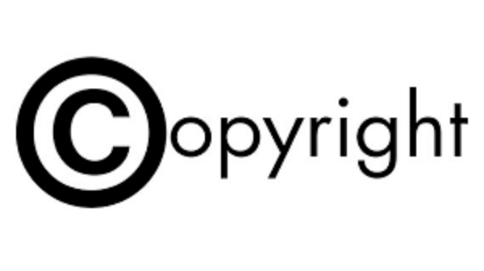Copyright DefinitionA copyright is a kind of intellectual property that grants its owner the sole authority to reproduce, display, transmit, modify, and perform creative work, frequently for a limited period. Creative work can be in a literature form, an art form, or an education form. The purpose of copyrights is to safeguard the first innovative representation of a concept. It aids in protecting authors against others copying their works without their approval for profit. In short, a copyright is a "Right to Copy" only granted to the real author. 
Copyrights create an environment that promotes originality in works. A copyright registration is valid for 60 years and exists even after the owner's death. Types of Copyrights in IndiaCopyrights promote an atmosphere that encourages creativity by protecting the rights of the original authors of works. The copyrights act applies to a variety of works. The copyrights available in India are listed below: 1. Literary worksWorks that include original or distinct literary production fall under this category. Scripts, novels, biographies, research papers, technical books, and algorithms are examples of literary works. 2. Dramatic worksIt is another type of literary work. It covers play preparation, entertainment show, drama, choreography etc. The cinematic movie is not considered in the dramatic work. 3. Artistic worksThe "Copyright Act of 1957 "protects artistic works such as paintings, moulds, photographs, buildings, schematics, etchings, cartoons, plans, and casts for sculptures, graphics, drawings etc. 4. Cinematographic filmsCinematographic films typically contain all previously-recorded visual and moving-image works. It is work that combines a visual recording with sound recordings. 5. Sound recordingAudio recording on any storage medium qualifies as a sound recording. Its examples are songs with or without music, a podcast, or recorded audio. Advantages of Copyright
Disadvantages of Copyright
Rights provided to Copyright holders
FAQs on Copyright1. What is meant by "Adaptation"?Answer: Creating new work from previously created work is known as adaptation. According to the copyright act, adaptations include:
2. What is a patent?Answer: Patents protect technological innovations, methods, chemicals, and manufactured object designs. A patent registration is valid for 20 years from the application's filing date. 3. What is copyright infringement?Answer: Using copyright-protected work without the owner's consent is called copyright infringement. Examples of specific copyright offences that may result in crime are listed here:
4. What kind of works are safeguarded by copyright?Answer: Copyright protects the following types of works:
Copyright laws cover only expressions; copyright laws do not cover ideas, processes, and operational procedures.
Next TopicDBMS Definition
|
 For Videos Join Our Youtube Channel: Join Now
For Videos Join Our Youtube Channel: Join Now
Feedback
- Send your Feedback to [email protected]
Help Others, Please Share










